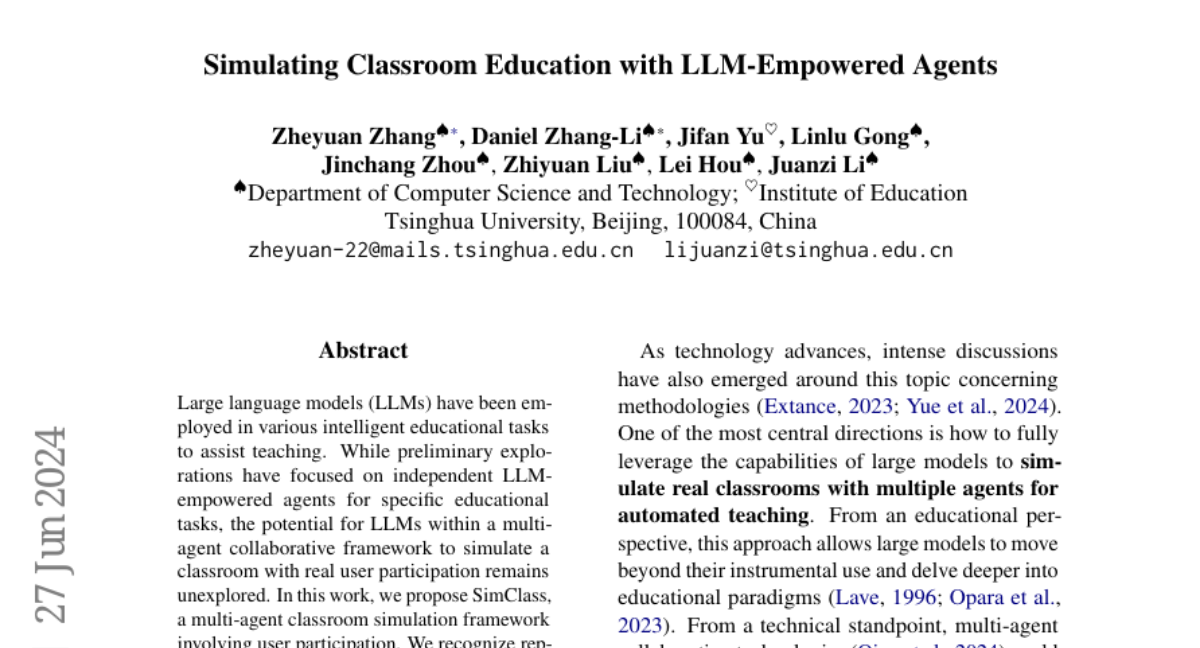Simulating Classroom Education with LLM-Empowered Agents
Zheyuan Zhang, Daniel Zhang-Li, Jifan Yu, Linlu Gong, Jinchang Zhou, Zhiyuan Liu, Lei Hou, Juanzi Li
2024-06-28

Summary
This paper talks about SimClass, a new system that uses large language models (LLMs) to create a simulated classroom environment where users can participate and interact with virtual agents acting as students and teachers.
What's the problem?
While LLMs have been used for specific educational tasks, there hasn't been much exploration into how they can work together in a classroom setting with real user participation. Traditional classroom simulations often lack the interactive and collaborative elements that make learning engaging and effective.
What's the solution?
To solve this problem, the authors developed SimClass, a multi-agent framework that simulates a classroom with different roles for agents, such as teachers and students. They designed a control mechanism to manage how these agents interact during lessons. The system was tested in two real-world courses, allowing users to engage in discussions and activities just like in a real classroom. The authors also used established educational frameworks to analyze the interactions and ensure they resembled traditional classroom dynamics.
Why it matters?
This research is important because it shows how LLMs can be used to create more interactive and engaging learning experiences. By simulating real classroom interactions, SimClass has the potential to enhance education by making learning more accessible and enjoyable for students, paving the way for future developments in virtual education.
Abstract
Large language models (LLMs) have been employed in various intelligent educational tasks to assist teaching. While preliminary explorations have focused on independent LLM-empowered agents for specific educational tasks, the potential for LLMs within a multi-agent collaborative framework to simulate a classroom with real user participation remains unexplored. In this work, we propose SimClass, a multi-agent classroom simulation framework involving user participation. We recognize representative class roles and introduce a novel class control mechanism for automatic classroom teaching, and conduct user experiments in two real-world courses. Utilizing the Flanders Interactive Analysis System and Community of Inquiry theoretical frame works from educational analysis, we demonstrate that LLMs can simulate traditional classroom interaction patterns effectively while enhancing user's experience. We also observe emergent group behaviors among agents in SimClass, where agents collaborate to create enlivening interactions in classrooms to improve user learning process. We hope this work pioneers the application of LLM-empowered multi-agent systems in virtual classroom teaching.